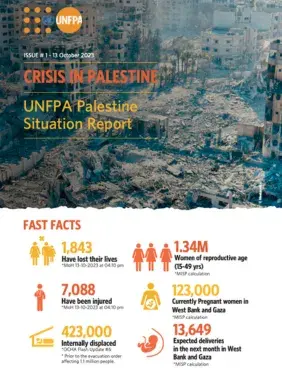Following Palestinian armed groups’ launch of “Operation Al-Asqa Flood” on 7 October, the Israeli Forces launched operation “Iron Sword“ with strikes on the Gaza Strip by air, land and sea. The current escalation follows six major military escalations between Israel and Palestinian militants in the past years, leading to substantial destruction of Gaza’s infrastructure and grave human suffering. This escalation has been marked by increased brutality and destruction, surpassing previous conflicts. According to the Palestinian Ministry of Health’s update on 13 October, at least 1,799 Palestinians have lost their lives, and 6,388 have been injured in Gaza since the start of the escalation. An additional 44 Palestinians, including four children, were killed, and 700 were injured by Israeli forces in the West Bank. With Israel’s formal declaration of war, the number of vulnerable individuals is expected to increase, and settler attacks in the West Bank and East Jerusalem are becoming more violent.
The situation is evolving rapidly, with a significant number of people fleeing their homes in Gaza and seeking refuge in schools and with relatives. On 13 October Israel announced for 1.1 million of Gaza population to evacuate to southern Gaza. Of critical concern to UNFPA are the estimated 540,000 women of reproductive age (WRA) in Gaza, among whom 50,000 are currently pregnant, and 5,522 are expected to deliver in the next month; these women face extreme challenges to access safe delivery services due to risks related to movement, compromised functionality of health facilities, and stocksouts in lifesaving supplies. If the situation continues to escalate, nearly 800,00 WRA in the West Bank including 73,000 currently pregnant women and the 8,127 expected to deliver in the next month will also be at heightened risk. Given the high density of the population, including those displaced directly by the recent violence, UNFPA is equally concerned for the safety and protection of women and girls from GBV.


